(This post was previously published on the Open.Ed Blog.)
With many image and media applications now integrating AI tools, it’s easier than ever to generate all kinds of eye-catching graphical content for your presentations, blog posts, teaching materials, and publications. Want a picture of a cartoon mouse to liven up your slides? No problem! Stable Diffusion, Midjourney, DALL-E, or Media Magic can create one for you. And if your AI generated rodent happens to bear a striking resemblance to another well known cartoon mouse, well that’s just a coincidence, no?
Copyright and AI
The relationship between ownership, copyright and AI is still highly contested both in terms of the works ingested by the data models driving these tools, and also the content they generate. Many of these data models ingest content that has been scraped from the web, with scant regard for intellectual property, copyright and ownership. Whether this constitutes legal use of protected works is a moot point. Creative Commons position is that “training generative AI constitutes fair use under current U.S. law”. Not everyone agrees; several artists and media organisations are attempting to sue various AI companies that they claim have used their creative works without their consent. Creative Commons believe that preference signals could offer a way to enable creators to indicate how their works can be used above and beyond the terms of the licence, and are exploring the practicalities of this approach (Preference signals for AI training.) It remains to be seen whether this is likely to be an effective solution to an intractable problem.
The European Union have taken a slightly different approach to copyright and AI with their EU Artificial Intelligence Act. Broadly speaking, the Act permits GenAI providers to use copyright content to train data models under the terms of the text and data mining exceptions of the existing Directive on Copyright in the Digital Single Market (DSM Directive). However, rights holders are able to reserve their rights to prevent their content from being used for text and data mining and training genAI. Furthermore, providers must keep detailed records and provide a public summary of the content used to train their data models. In short, it’s a compromise; Gen AI models can scrape the web, but they must keep a public record of all the content they use, and they must allow copyright holders to opt out. How this will work in practice, remains to be seen.
The UK is one step behind the EU, the government is undertaking an open consultation on Copyright and Artificial Intelligence, which appears to be broadly following the EU’s approach.
Copyright of AI Generated Content
Then there’s the issue of who owns the copyright of AI generated content. One common assumption is that AI generated images are not subject to copyright because they are not creative works produced by humans. Creative Commons perspective is that “creative works produced with the assistance of generative AI tools should only be eligible for protection where they contain a significant enough degree of human creative input to justify protection.” (This is not a bicycle: Human creativity and generative AI.) The problems start when AI tools generate images that are almost indistinguishable from the content they have ingested. Take that AI generated cartoon mouse for example. The reason it’s so similar to Disney’s famous, and famously copyright mouse is that the AI data models are likely to have scraped millions of images of Mickey Mouse from the web, with little regard for Disney’s intellectual property. Rights holders may be able to argue that an AI generated image infringes their copyright on the basis of substantial similarity (The complex world of style, copyright, and generative AI.) This represents a risk which AI application developers are keen to shift on to their users. It’s not uncommon for AI applications to explicitly make no copyright claim over the images generated by their tools. For example with regards to the copyright of AI generated images, Canva states:
“The treatment of AI-generated images and other works under copyright law is an open question and the answer may vary depending on what country you live in.
For now, Canva does not make any copyright claim over the images you create with our free AI image generator app. As between you and Canva, you own the images you create with Text to Image (subject to you following our terms), and you give us the right to host them on our platform and to use them for marketing our products.”
So if Disney does happen to spot your AI generated cartoon mouse and decides to sue, it’s you, or your employer, that’s going to be liable, not the tool you used to generate the image.
OER Service Guidance
The University of Edinburgh’s OER Service currently provides the following advice and guidance on using AI generated images:


We also recommend consulting the University of Edinburgh’s Generative AI Guidance for Staff.
Public Domain Images
A more ethical, and environmentally friendly, alternative to using AI generated images is to use public domain images, of which there are millions, with more entering the commons every year. Public domain works, are creative works that are no longer under copyright protection because copyright has expired and they have entered the public domain, or they have been dedicated to the public domain by creators who choose to give up their copyright. This means that they can be used free of charge, by anyone, for any purpose, without any restrictions whatsoever. You don’t even have to provide attribution to the creator, though we always recommend that you do.
There are many fabulous sources of easily discoverable public domain images on the web, including:
- Flickr Commons
- Wikimedia Commons
- Rijksmuseum
- Getty Museum Open Content Program
- Europeana
- Openverse
- British Library on Flickr
- Public Domain Review
- Public Domain Image Archive
Public Domain Day is celebrated on the 1st of January each year. In many countries, this is the day that copyright expires on creative works, and they become part of the public domain. This year, on Public Domain Day, the Public Domain Review launched a new interface to their Image Archive to enable users to search and explore their collections.
And if you do happen to be looking for a cartoon mouse to use in your slides you’ll find one in the public domain that you can use with no restrictions or risk of copyright infringement, either for you or your employer. The original version of Mickey Mouse from the 1928 cartoon Steamboat Willie entered the public domain in 2024.

Mickey Mouse by Walt Disney, public domain image from the 1928 cartoon Steamboat Willie.
Further Reading
- CC Responds to the United States Copyright Office Notice of Inquiry on Copyright and Artificial Intelligence
- AI Act of the European Union
- AI, the Artificial Intelligence Act & Copyright
- European Parliament Directive on copyright and related rights in the Digital Single Market
- The complex world of style, copyright, and generative AI
- This is not a bicycle: Human creativity and generative AI
- Preference signals for AI training
- The Power of Open Culture
- Happy Public Domain Day 2025
- Mickey’s Adventure into the Public Domain
- Mickey Mouse Is Now in the Public Domain After 95 Years of Disney Copyright










 Created by an independent developer,
Created by an independent developer, 




 Others questioned the macabre ethics of foisting an artificial voice on actual human remains, such as the museum’s collection of mummies. I had a surreal conversation with the mummy of Cleopatra, who died in Thebes aged 17, during the reign of Trajan. It was a deeply unsettling experience.
Others questioned the macabre ethics of foisting an artificial voice on actual human remains, such as the museum’s collection of mummies. I had a surreal conversation with the mummy of Cleopatra, who died in Thebes aged 17, during the reign of Trajan. It was a deeply unsettling experience. 

 This is where “authenticity and factuality” were both sacrificed…
This is where “authenticity and factuality” were both sacrificed…







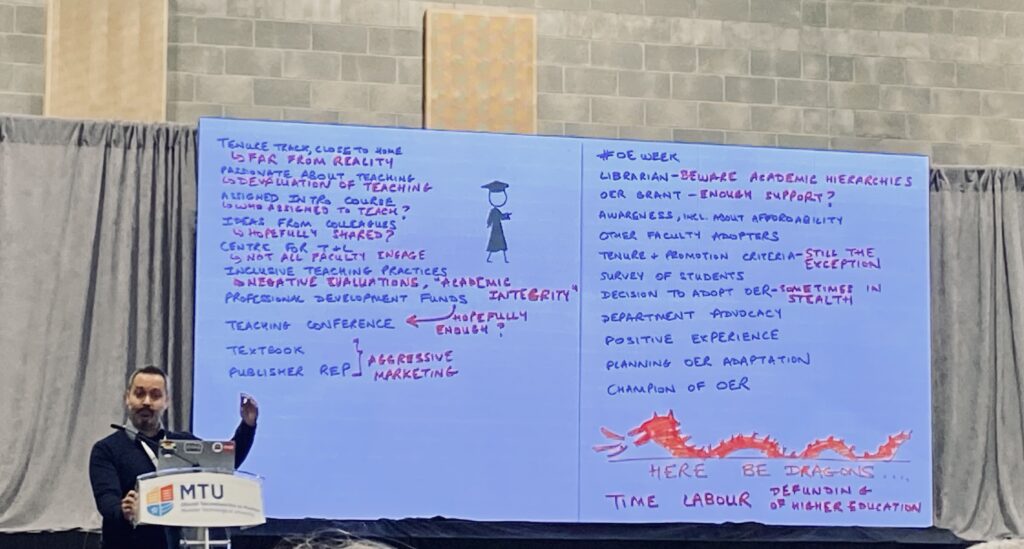

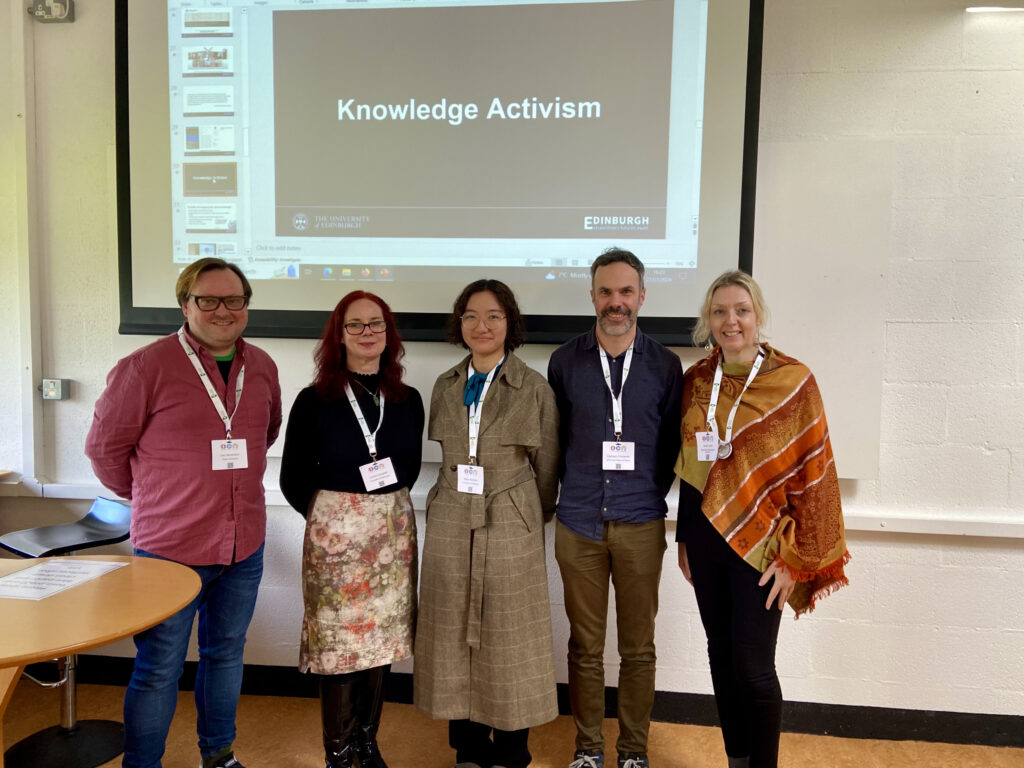


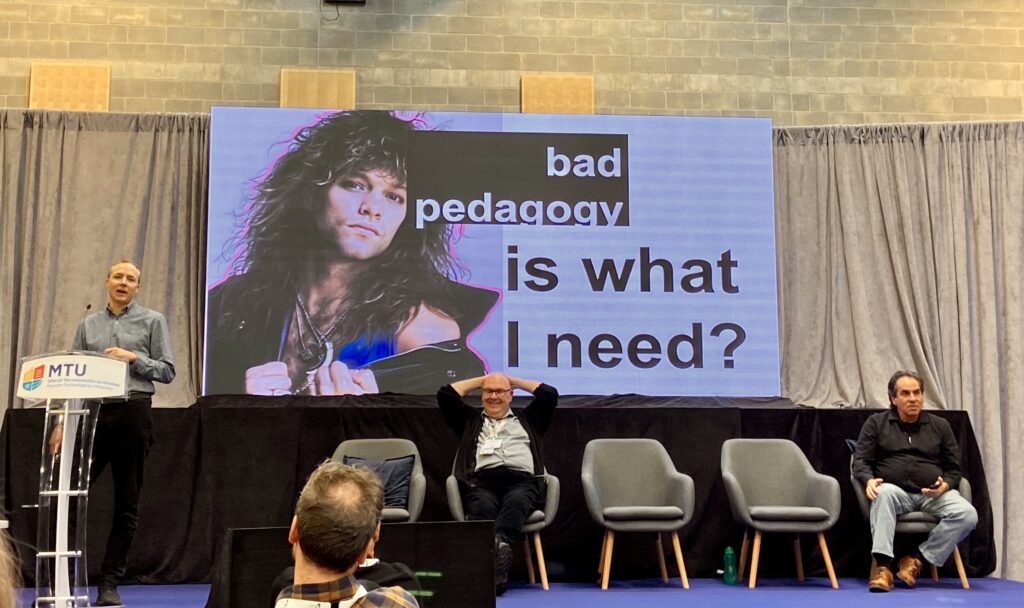


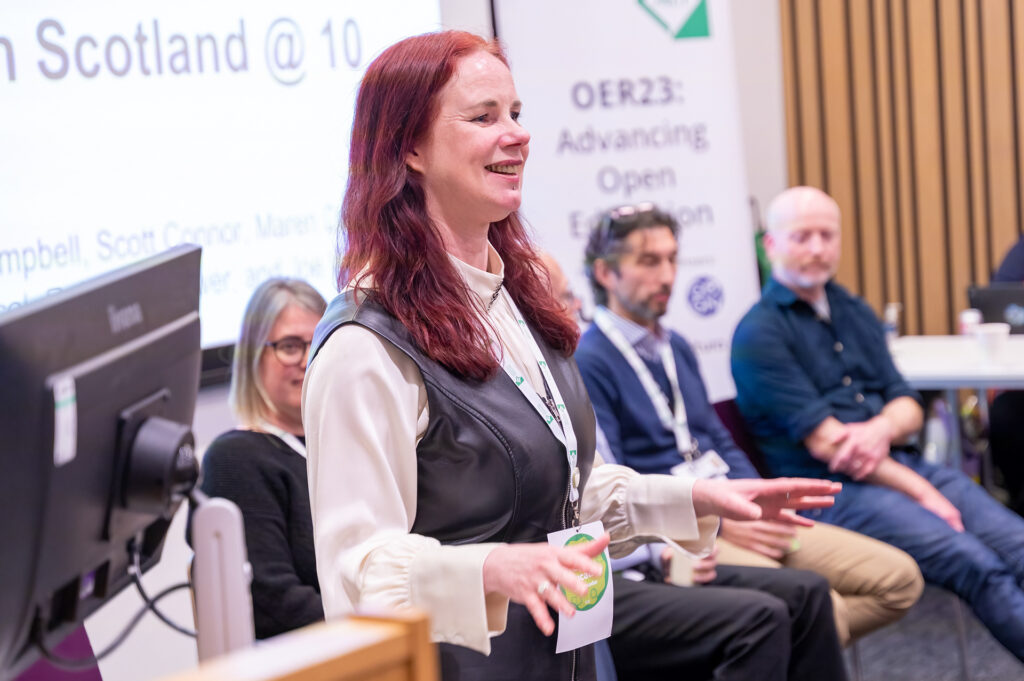
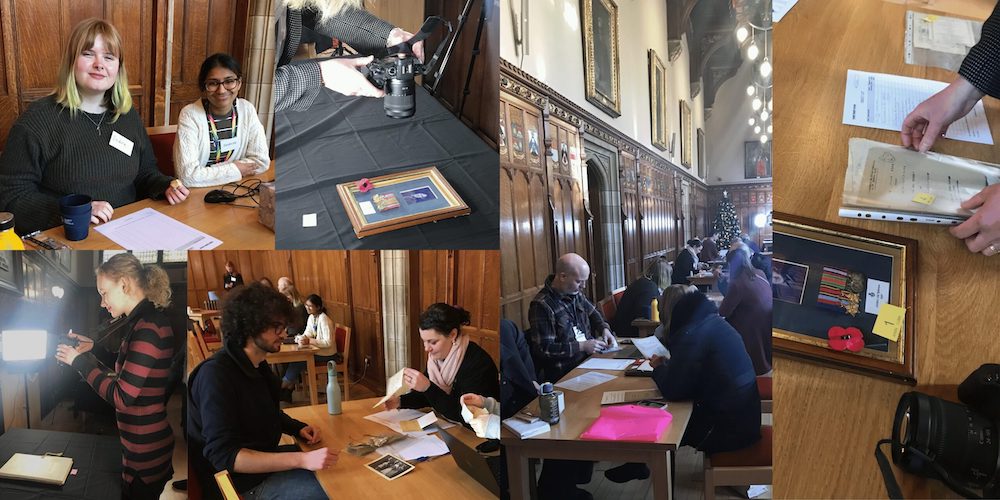
 “Quilting has always been a communal activity and, most often, women’s activity. It provides a space where women are in control of their own labour: a space where they can come together to share their skill, pass on their craft, tell their stories, and find support. These spaces stand outside the neoliberal institutions that seek to appropriate and exploit our labour, our skill, and our care. The FemEdTech-quilt assemblage has provided a space for women and male allies from all over the world to collaborate, to share their skills, their stories, their inspiration, and their creativity. We, the writers of this chapter, are five humans who each has engaged with the FemEdTech Quilt of Care and Justice in Open Education in different ways, and who all have been active in the FemEdTech network.”
“Quilting has always been a communal activity and, most often, women’s activity. It provides a space where women are in control of their own labour: a space where they can come together to share their skill, pass on their craft, tell their stories, and find support. These spaces stand outside the neoliberal institutions that seek to appropriate and exploit our labour, our skill, and our care. The FemEdTech-quilt assemblage has provided a space for women and male allies from all over the world to collaborate, to share their skills, their stories, their inspiration, and their creativity. We, the writers of this chapter, are five humans who each has engaged with the FemEdTech Quilt of Care and Justice in Open Education in different ways, and who all have been active in the FemEdTech network.” 
